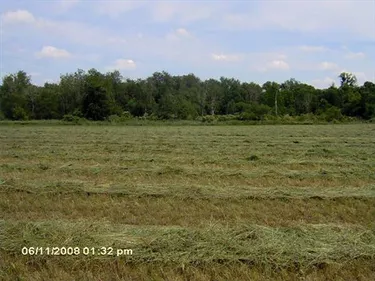
Differentiate Between Recreational and Farm Land
The type of land you are purchasing will affect your land loan options. Financial institutions differentiate between recreational land and farm or income producing land when deciding whether to offer financing. There are bank underwriters who have a strict policy of never lending money for farm or income producing land, regardless of the amount of down payment, or credit history of the borrowers. Banks with this policy will loan money for land that is purely for recreational use such as hunting, fishing, and vacationing. Therefore, before approaching lenders about financing land, you must first ascertain how the land will be used.
Video of the Day
Approaching Lenders
Once you have decided on the use of the land, you can begin looking for a loan. If the land will be for recreational use only, you can approach any type of lender as long as you have an excellent credit history. For farmland or other types of income producing land, you will probably need to contact a farm lender. Farm lenders, such as Farm Credit Services, having backing from the government and require mortgage insurance regardless of the down payment the borrower is making on the land. Some farm lenders have special programs for new farmers and for farmers with poor credit histories.
Video of the Day
Financing
Lenders always require more of a down payment from borrowers who are purchasing vacant land than they do from borrowers who are purchasing homes. While you may be able to purchase a home with as little as 3% down, most vacant land lenders require at least a 25% down payment. You will also need to pay closing costs, which include accrued property tax, title insurance, appraisal, and recording fees. Appraisals for large parcels of land may cost nearly twice the amount of a typical home appraisal. Terms are similar to home loans. You can finance your land for 10, 15, 20, or 30 years usually, depending on the policies of the lender. If the land you are purchasing happens to be in a government program such as PA116, you may need permission from your state DNR authority to purchase, split, or use the land. You may also need to pay back discounts or benefits received from the program over the term of the enrollment period.